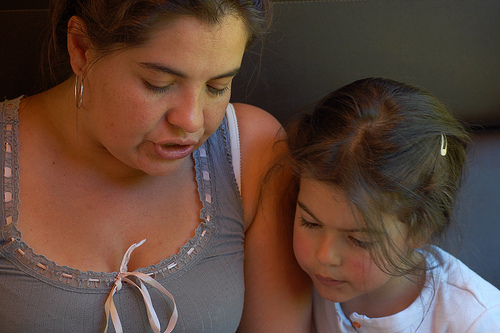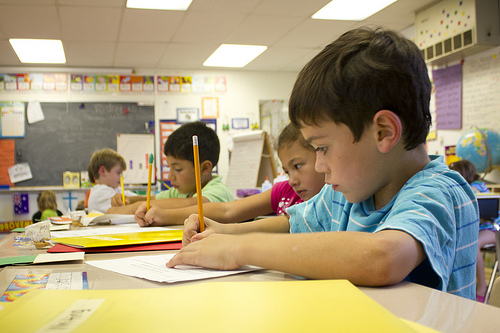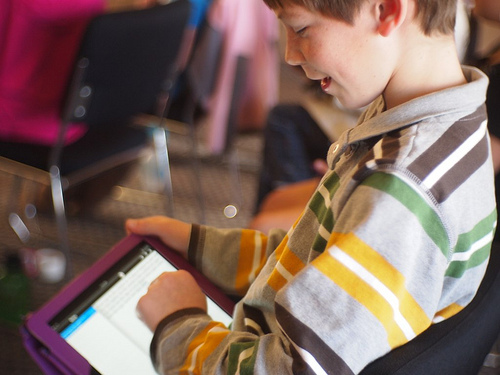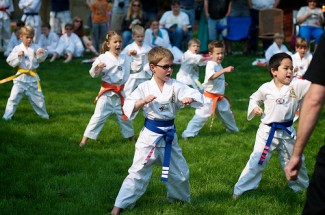Beating the Summer Slump with Digital Play!
Summer is a welcome break from the rigor of school for most kids. They might busy themselves with summer camps, vacations, adventures, free play, and time with family and friends. […]
Self-Control is the thinking skill that helps children learn to control their feelings and behaviors in order to make good decisions, while aiding in reducing impulsive actions and dealing effectively with frustration. For example, a child may use Self-Control when encountering a difficult problem on a test. Rather than impulsively writing down any answer, they are able to control their anxiety and figure out the answer.
Video games allow kids to practice their Self-Control skills while in the midst of a fun and immersive gaming experience. Many games require that players stop themselves from engaging in a previously-successful action in order to learn a different approach on a new level. Similarly, the capacity to handle frustration is an inherent part of the learning process in well-designed video games.
Watch the video to learn more about how video games can help your child improve their Self-Control thinking skill.

Self-Control is a vital part of a child’s social well-being, as it allows them to make good decisions by regulating their feelings, frustrations, and reactions. This thinking skill also helps children to stop themselves from engaging in inappropriate and impulsive actions and to learn how to plan out, consider, and display appropriate behaviors.
 These are some general strategies and ideas for helping kids to improve their Self-Control skills.
These are some general strategies and ideas for helping kids to improve their Self-Control skills.

Self-control plays a role in academics, particularly when demands increase and learning can become more frustrating. Self-Control helps students take their time while performing tasks, allowing for planning and metacognitive skills that facilitate deeper learning. Self-Control is an important skill for avoiding conflict and overwhelming frustration when children are doing unwanted homework.

Playing video games, searching the Internet, trying out the newest app, or Facebooking a friend demands a variety of thinking skills. Proficiency with any of these digital tools requires the ability to apply skills such as Planning, Organization, Working Memory, or Self-Control. For children, the attraction of video games and technologies makes them an ideal teaching tool for practicing game-based skills and learning to apply them to school and daily activities.
Self-Control is a skill that helps players tolerate the frustration inherent in the trial-and-error nature of learning new skills within video games and other interactive digital media. Handling disappointment, maintaining emotional stability, and thinking before acting facilitate success in games. While success in some games is based upon rapid hand-eye coordination, many of the most popular and complex video games require self-control and thoughtfulness to succeed.
 Self-control is a commonly-defined executive function that is often seen as a component of how individuals manage their feelings and behavior. The thinking skill of self-control is composed of two of Dawson and Guare’s executive skills, those of response inhibition and self-regulation of affect. Dawon and Guare define response inhibition as “the capacity to think before you act and the ability to resist the urge to say or do something.” Self-regulation of affect is defined as “the ability to manage emotions in order to achieve goals, complete tasks, or control and direct behavior.”
Self-control is a commonly-defined executive function that is often seen as a component of how individuals manage their feelings and behavior. The thinking skill of self-control is composed of two of Dawson and Guare’s executive skills, those of response inhibition and self-regulation of affect. Dawon and Guare define response inhibition as “the capacity to think before you act and the ability to resist the urge to say or do something.” Self-regulation of affect is defined as “the ability to manage emotions in order to achieve goals, complete tasks, or control and direct behavior.”
As an executive function, self-control essentially reflects the ability to regulate behavior and emotions. It helps to reduce impulsivity and moderate emotional responses to situations. Self-control helps children to think before they act and may be observed in children’s capacity to raise their hands before speaking in class or stopping themselves from hitting another child when they are angry. Self-control skills are extremely important in social relationships and displaying appropriate behavior in settings such as classrooms, sporting events, and in one-on-one relationships.
Assessing the executive function of self-control in children involves determining how well they can regulate their actions and affect. The LearningWorks for Kids thinking-skills assessment is based on the Executive Skills Questionnaire (ESQ), which measures self-control primarily by children’s capacity to wait their turn in activities, consider the consequences of their actions and behavior, accept criticism, and handle stress.
Summer is a welcome break from the rigor of school for most kids. They might busy themselves with summer camps, vacations, adventures, free play, and time with family and friends. […]
The Legend of Zelda: Tears of the Kingdom, the latest installment of the famed adventure game franchise, is set to be released on Friday, May 12, 2023. At LearningWorks […]
Executive functions are the chief operating skills based in our brain that are crucial for goal-oriented behavior. These functions include self awareness, attention, organization, planning, working memory, and flexibility. Every […]
All membership plans come with full access to our entire suite of tools learning guides, and resources. Here are a few of the ones we think you’ll like the most: